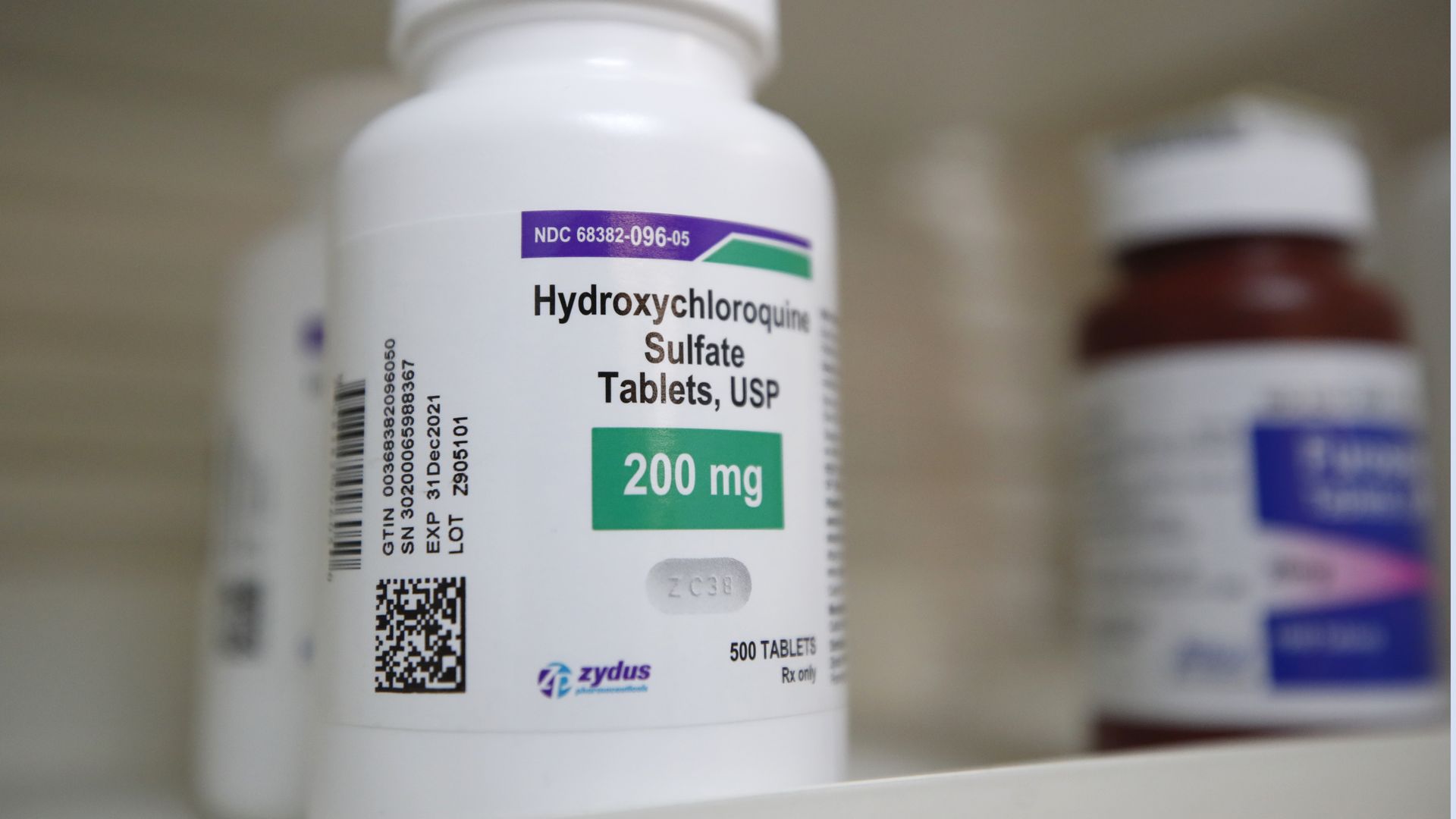Medical journal retracts study that fueled hydroxychloroquine concerns
Add Axios as your preferred source to
see more of our stories on Google.

Photo: George Frey/AFP via Getty Images
The Lancet medical journal retracted a study on Thursday that found that coronavirus patients who took hydroxychloroquine had a higher mortality rate and increased heart problem than those who did nothing, stating that the authors were "unable to complete an independent audit of the data underpinning their analysis."
Why it matters: The results of the study, which claimed to have analyzed data from nearly 96,000 patients on six continents, led several governments to ban the use of the anti-malarial drug for coronavirus patients due to safety concerns.
- The World Health Organization also temporarily suspended its tests of hydroxychloroquine due to The Lancet study, before resuming them on Wednesday.
The big picture: An investigation by The Guardian found that employees at Surgisphere, the company that The Lancet relied on for its data, had little to no data science or scientific background.
- “Surgisphere came out of nowhere to conduct perhaps the most influential global study in this pandemic in the matter of a few weeks," one doctor who publishes the results of hydroxychloroquine studies online told The Guardian.
- It's unclear how Surgisphere was able to get data-sharing agreements with over 600 hospitals worldwide, and many in the scientific community had raised concerns about the reliability of its data.
What they're saying:
Today, three of the authors of the paper, "Hydroxychloroquine or chloroquine with or without a macrolide for treatment of COVID-19: a multinational registry analysis", have retracted their study. They were unable to complete an independent audit of the data underpinning their analysis. As a result, they have concluded that they "can no longer vouch for the veracity of the primary data sources." The Lancet takes issues of scientific integrity extremely seriously, and there are many outstanding questions about Surgisphere and the data that were allegedly included in this study.— The Lancet
Zoom in: President Trump has frequently touted the use of hydroxychloroquine for COVID-19, turning the debate over the anti-malarial drug into a politically charged issue in the U.S.
- Hydroxychloroquine prescriptions rose dramatically in March after the drug was brought into the political spotlight by Trump, with hydroxychloroquine and chloroquine fills increasing from 2019 levels by 1,977% between March 15–21.
- Trump himself took the drug last month after two West Wing staffers tested positive for the virus.
Worth noting: Despite The Lancet's retraction, data from a randomized, placebo-controlled clinical trial published in the New England Journal of Medicine this week found that hydroxychloroquine did not prevent people from getting COVID-19 if they were exposed to the virus. The FDA has also issued a warning that the drug should only be taken in hospitals because of the risk of heart complications.
